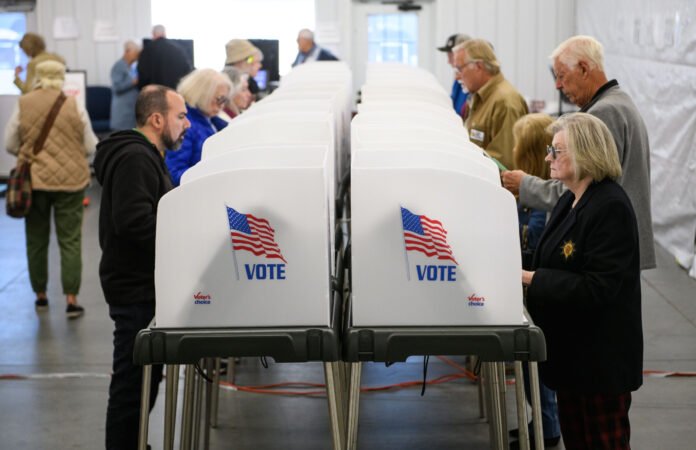Non-citizen voting rights took a hit Tuesday as the House passed a bill aimed at overturning a D.C. election law. Representative August Pfluger, a Republican from Texas, led the effort to stop non-citizens from voting in the nation’s capital.
The bill passed with 266 votes in favor and 148 against. Notably, 56 Democrats joined Republicans in supporting it. Only one Democrat voted “present,” avoiding a firm position.
In 2022, Washington, D.C.’s city council approved a measure allowing non-U.S. citizens to vote in local elections. The rule applied to those living in the city for at least 30 days. This sparked sharp backlash from Republicans across the country.
Pfluger argued that Congress has the authority to act. He claimed D.C. leaders went too far in granting voting privileges to non-citizens. “We have jurisdiction,” he said. “And in this case, they’ve clearly crossed a line.”
Critics of the local law, especially among Republican national security hawks, raised major concerns. They warned about potential foreign influence through local voting. Some even mentioned the possibility of hostile agents participating in U.S. civic life.
However, many progressive Democrats strongly opposed the bill. Representative Maxwell Frost of Florida argued the GOP only uses D.C. issues for political advantage. He said they target immigrants to score points with their base.
Frost dismissed the idea of foreign interference as unrealistic. He explained that voting would require individuals to give up voting rights in their home countries. He also emphasized that D.C. has no power in federal elections.
Despite his opposition, the bill gained traction. Pfluger expressed optimism that bipartisan support would grow. He noted that over 50 Democrats had backed a similar measure in the last Congress.
That earlier bill died in the Democrat-led Senate. However, this latest version may stand a better chance of advancing. Pfluger believes Democrats will face difficult questions back home.
“It’s hard to tell voters you support non-citizen voting rights,” he said. “It affects how the city operates, even if not at the federal level.”
As debate continues, non-citizen voting rights remain a flashpoint in national politics. The next move will come from the Senate—and it could redefine the boundaries of local control.
For more political updates, visit DC Brief.


